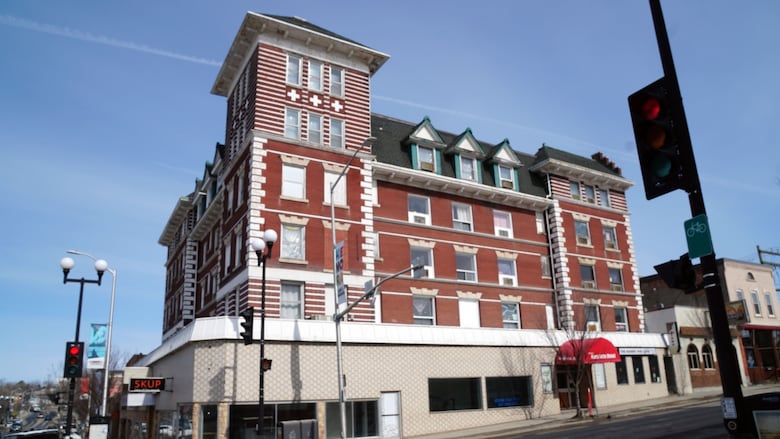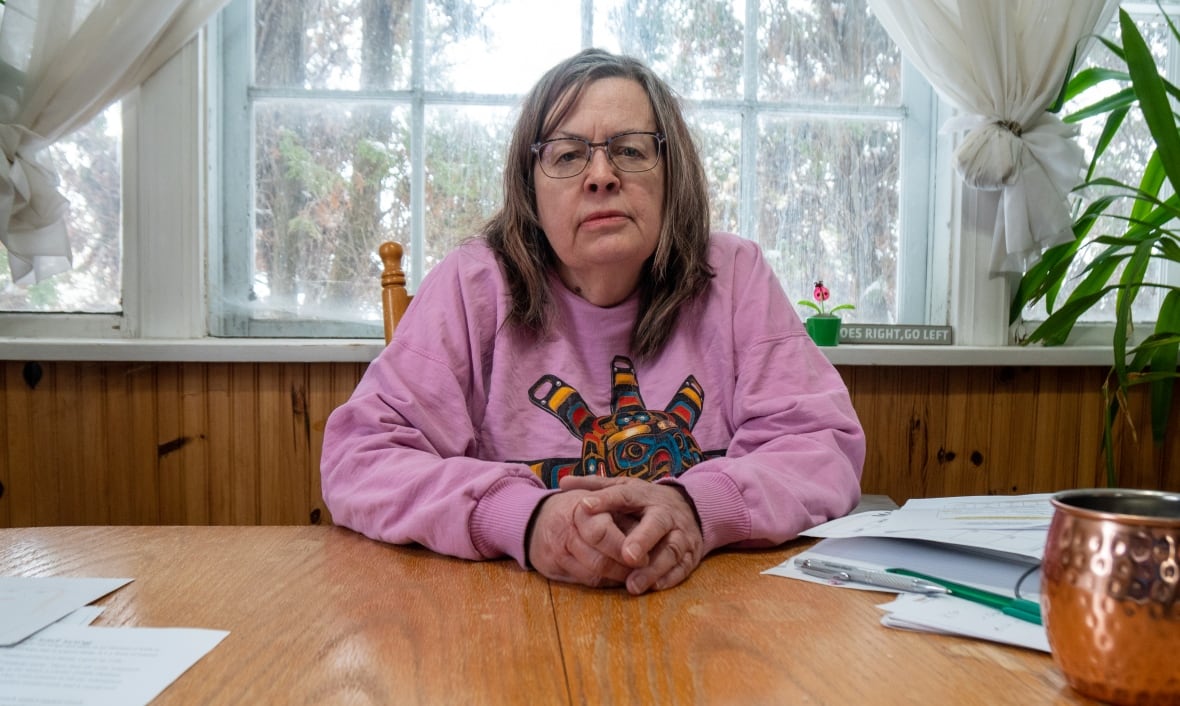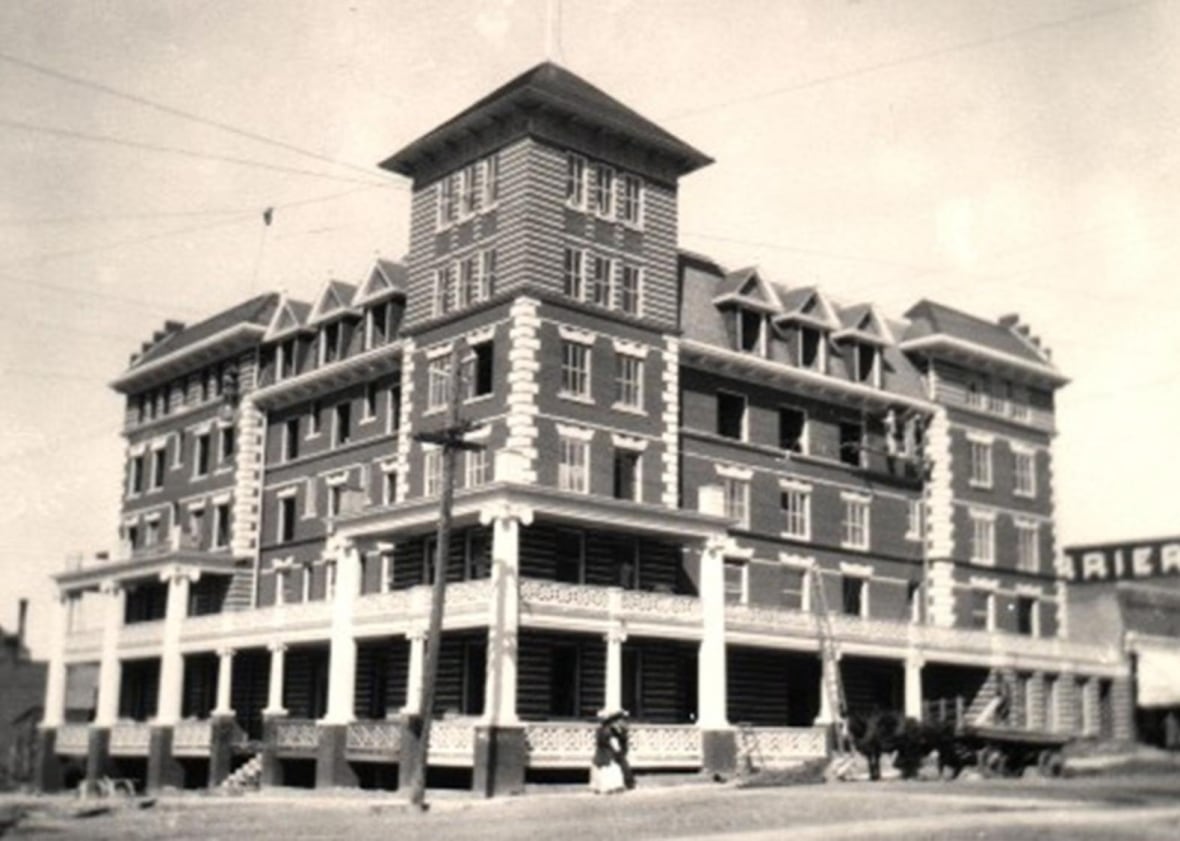Housing advocates raise concerns over removal of tenants from Kenora, Ont., hotel
Expropriation of Kenricia Hotel to take 6 to 9 months, entire project at least 2 years

As the City of Kenora begins the process of taking over the historic Kenricia Hotel, housing advocates say they're concerned about what will happen to the people currently living there.
The city announced the upcoming expropriation of the hotel last week. The building, located in the northwestern Ontario town's downtown core, first opened its doors in 1910 and is a designated heritage site.
The goal of the project, which is expected to take at least two years, is to renovate the roughly 65,000 square-foot building to attract more tourists downtown. According to the city, large portions of the building are vacant.
"In its current state, with the lack of investment, you're starting to see more vagrants here in the area and less families and less tourists around that the city would like to see," Stace Gander, Kenora's director of economic development and tourism, told CBC's Superior Morning Monday.
Marlene Elder, a lead member of the community coalition Kenora Moving Forward, said the city shouldn't be characterizing its most vulnerable members as 'vagrants.'
"It's not an either or situation. It's not like we don't want there to be economic opportunities in the city, that we don't want the city to grow," Elder said.

"I think we're looking at trying to make sure that people are housed so they can participate in those opportunities, and it's a frustration that it's very much an afterthought to people."
Kenora Moving Forward works closely with unhoused individuals in the community. It operates out of St. Alban's Cathedral Tuesday and Sunday evenings, and does a lot of advocacy work around homelessness and addiction issues.

While the city says it plans to work with the Kenora District Services Board (KDSB) and other community partners to find alternative housing for tenants who will be displaced, Elder said long waitlists will leave people with few options.
"You're basically removing a central housing spot because people that don't have transportation or they need services that are downtown, or they just want to be downtown, won't have that spot now," she said.
"There's this push to kind of relocate people elsewhere and [make] the downtown just for tourists and business people."
'It was a roof over their head'
The Kenricia Hotel is currently privately owned. It contains three businesses — two restaurants and an ice cream parlour — and a number of residential tenants.
CBC News reached out to Fadel Chidiac, the hotel's director of operations, and was told its ownership is unavailable for comments at this time. However, he said he may have an update to share by the end of the week.

While it's unclear exactly how many tenants live in the hotel, Elder said she's heard it's in the ballpark of 30 to 35 people.
In the KDSB's latest point-in-time count of people experiencing homelessness in the district, it found at least 325 people were known to be unhoused in Kenora in the fall. Fewer than 15,000 people live in the city.
While concerns have been raised for years about living conditions at the Kenricia Hotel, "it was a roof over their head," Elder said of its occupants.
In its current state, with the lack of investment, you're starting to see more vagrants here in the area and less families and less tourists around that the city would like to see.- Stace Gander, director of economic development and tourism, City of Kenora
"It would be great if it was a facility that was fixed up and administered properly, right, by not a private landlord."
As people are continuing to live in tents throughout the community, Elder said she wants to see more supportive housing units built in town, as well as more investments in social housing across the country to meet demands.
"The city should be lobbying the politicians for a project like that because the private market is not going to develop social housing, because there's no money in it for them," she said.
Making Kenora a four-season destination
The expropriation of the Kenricia Hotel involves an eight-step process, which is expected to take between six and nine months before renovations get underway, said Gander. It must be done in accordance with Ontario's Expropriations Act and Heritage Act, and existing businesses will receive compensation for the disruption.
"Meetings like that are difficult because there's a lot of uncertainty with this. But again, we're there to support them. We're not trying to strand anyone and we'll do what we can to support them going forward," Gander said.
"We do have a robust economic development department and there are other options in Kenora, so we'll work with them."
The city's website describes the building as "a cherished part of Kenora's iconic skyline and community identity," and Gander said it can't afford to let the structure deteriorate further.
"There's always going to be some people that aren't going to support a bold move like this, but this is something where status quo is not an option," he said. "We're really working hard to make Kenora a four-season destination and we have amongst the lowest vacancy across Canada during the summer months for hotel rooms.
"It would be nice to see all those hotel rooms redone, the hotel full, all the commercial spaces that are currently vacant full, and just a very active, vibrant corner."
But even when the Kenricia is closed for renovations, Elder said vulnerable residents will continue to flock to the downtown core, where the majority of social services are located.
"Stace's comment sort of implied that once they fix it up, there'll be less people hanging around — and I don't see the correlation," she said.
"Kenora is a service centre for a lot of government programs and a lot of First Nations, and that's really more the economy than tourism."

